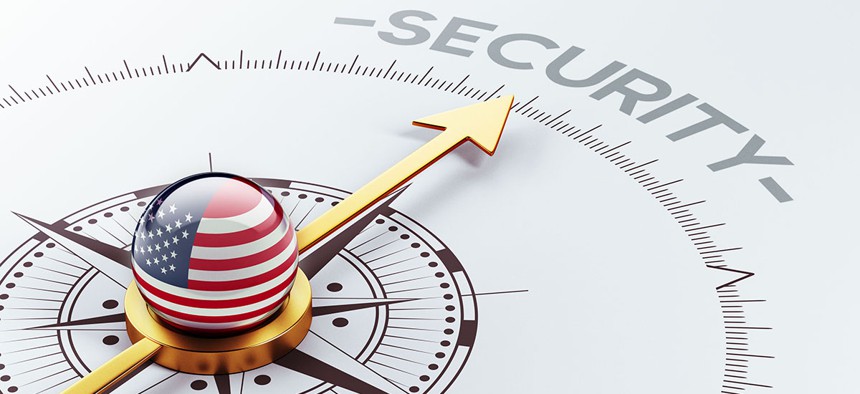Survey: Americans Worry More About National Security Than Hacking

xtock/Shutterstock.com
Consumers in most other nations surveyed were more concerned about bank card fraud and identity theft.
Consumers in the U.S. are more concerned about the threat of terrorism or war than they are about virtual threats including identity theft or viruses, according to new research.
About 68 percent consumers surveyed in the U.S. said they were “extremely concerned” or “very concerned” about national security as it relates to terrorism or war, according to the 2017 Unisys Security Index, which polled more than 1,000 people from 13 countries each.
The top concern across nations was identity theft, but a handful of outliers prioritized national security: the U.S. was joined by Germany and the U.K.
» Get the best federal technology news and ideas delivered right to your inbox. Sign up here.
American consumers’ concern about terrorism and war has risen steadily since they responded three years ago, when only about 47 percent logged significant concerns, according to the report.
The survey is designed to give businesses a snapshot of demand for certain security services. It’s a measure of threat perception, but not necessary of actual threats, Bill Searcy, Unisys vice president of global justice, law enforcement and border security and former FBI deputy assistant director, said during a press briefing Tuesday.
Respondents may be seriously concerned about certain threats because of a “lack of understanding and the perception that anyone can be a victim,” Searcy said.
“It’s still fairly safe to be an American and walk around the streets," he said. "Billions of transactions take place online every day and people don’t get their information stolen.”
Fears of viruses and malware were secondary to national security concerns in the U.S. About 56 percent of American consumers said they were seriously concerned about internet security, a 55 percent increase since the previous survey in 2014. About 61 percent said they’re “seriously concerned” about identity theft, and 58 percent said the same for bank card fraud.
The Unisys Security Index benchmarks concern on a scale between 0 and 300, with 100 being “somewhat concerned” and 300 being “seriously concerned.” American consumers’ overall security concerns—across categories including national and personal safety—jumped from 123 in 2014 to 169.
For comparison, respondents in developing countries logged significantly higher overall security concerns than in the U.S. The Philippines topped the ranking at highest at 243, Mexico followed at 216, and Malaysia was third.
In the U.S., respondents between the ages 18-24 were overall much more concerned than those between 55 and 65, according to Unisys.
Survey respondents were asked to describe their level of concern about national security related to terrorism or war, natural disasters, bank card fraud, financial obligations, viruses and hackers, online transactions, identity theft and personal safety.
Unisys polled adults living in Argentina, Australia, Belgium, Brazil, Colombia, Germany, Malaysia, Mexico, Netherlands, New Zealand, Philippines, the U.S. and the U.K.
NEXT STORY: 198M Voters’ Data Exposed by RNC Contractor





